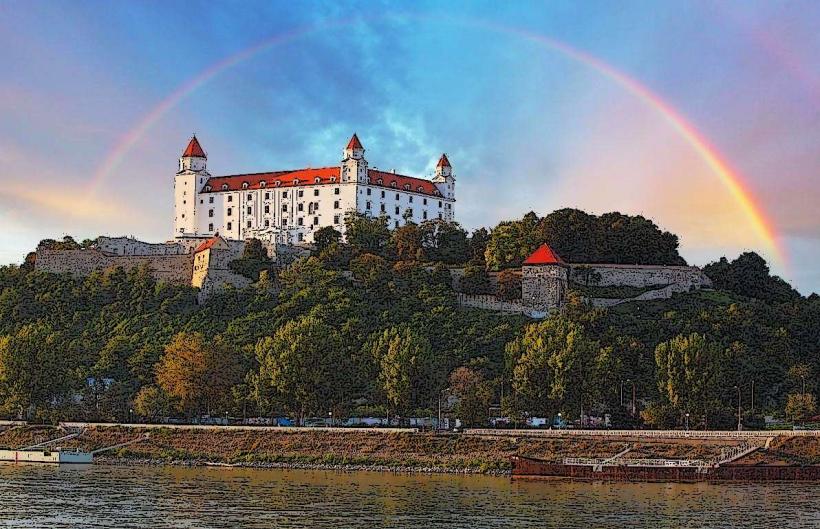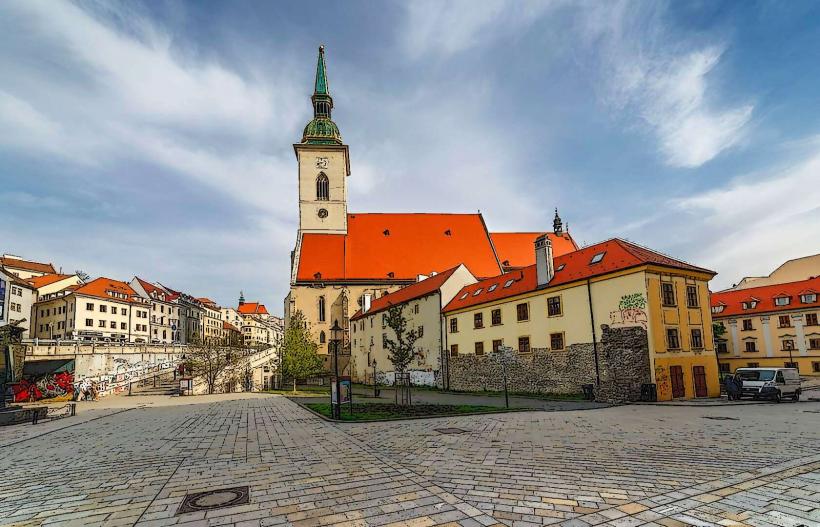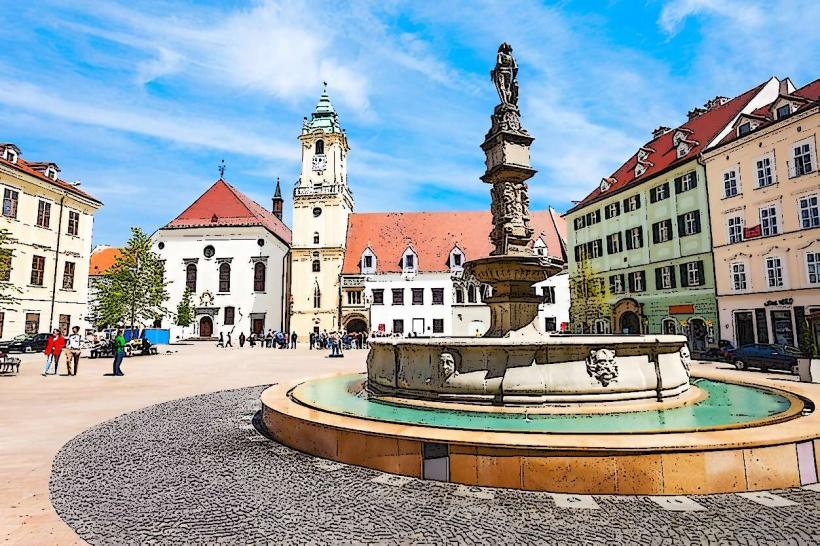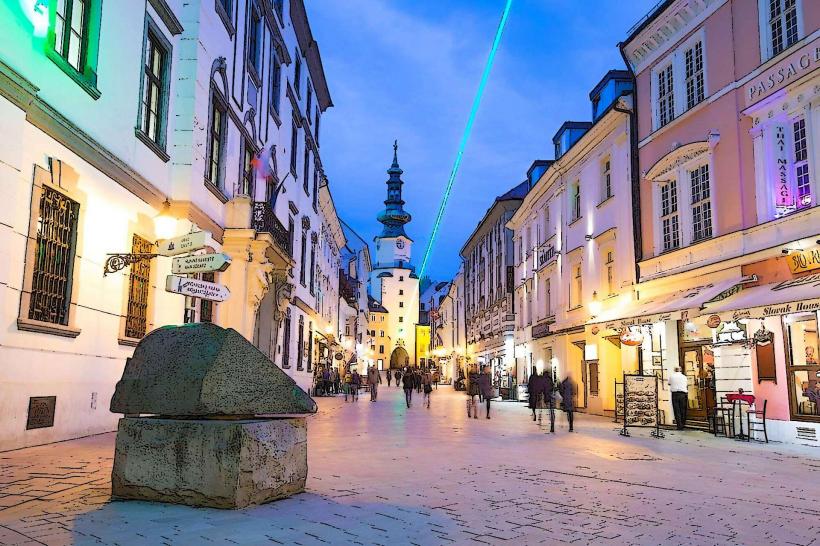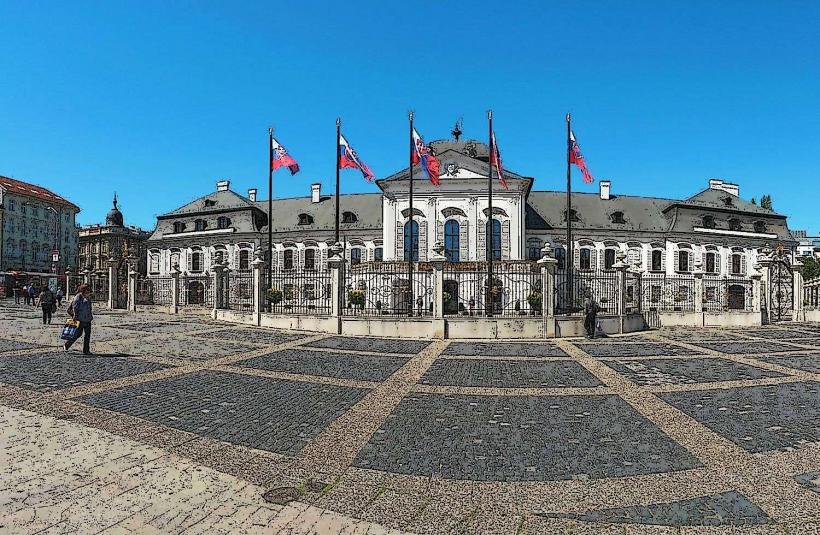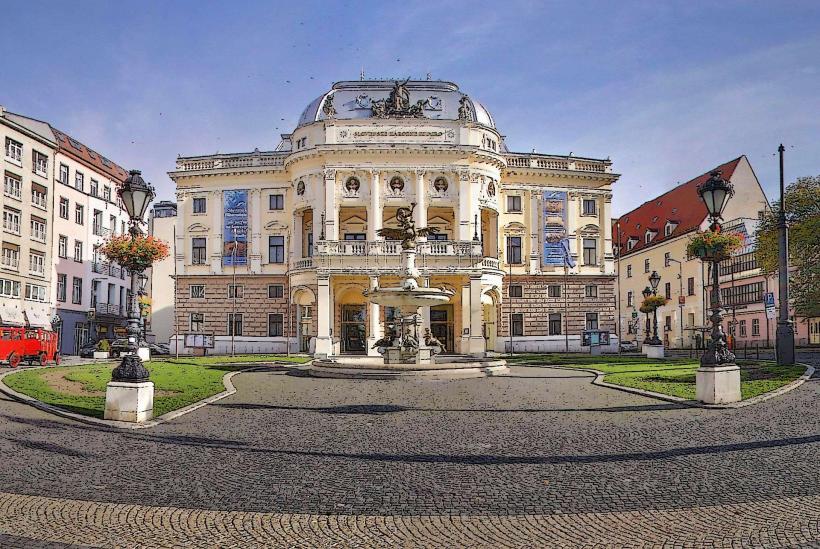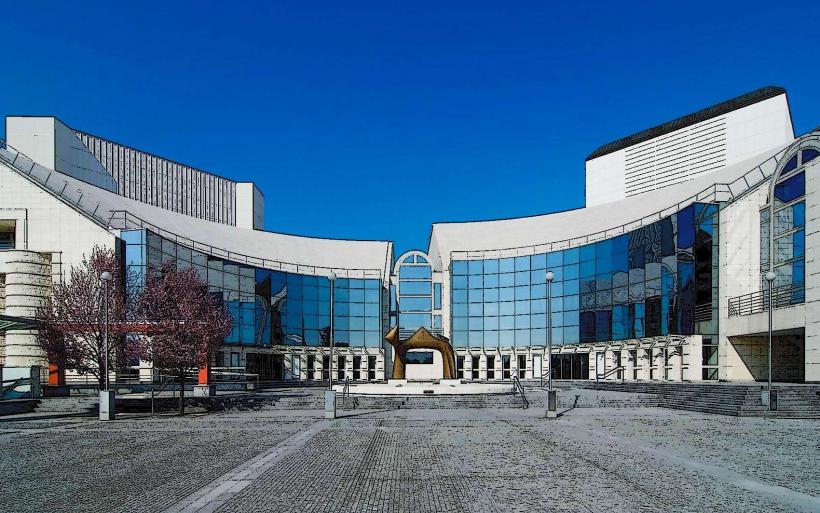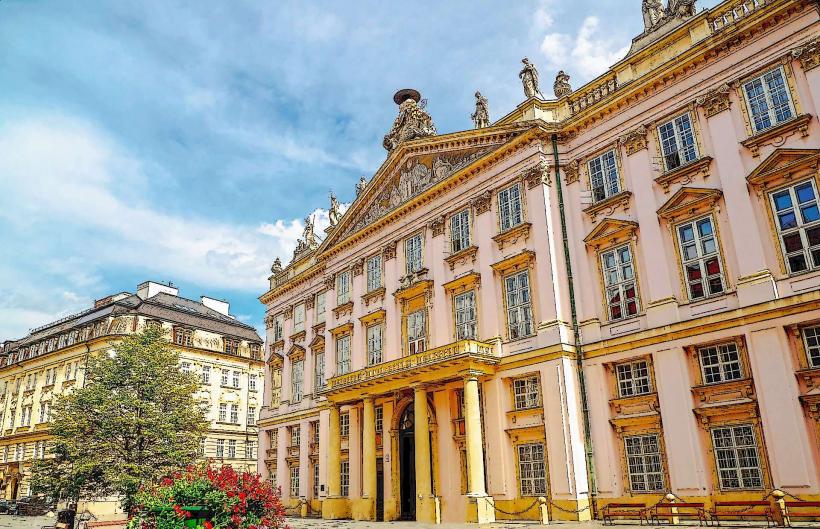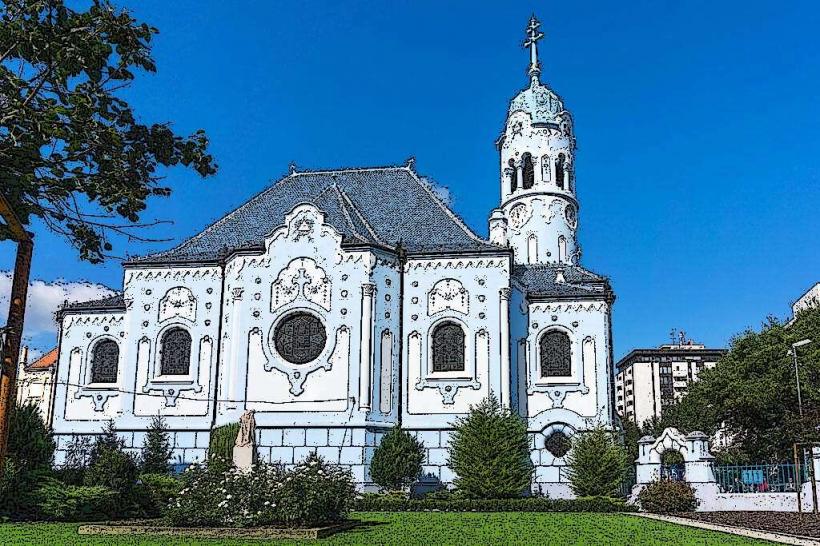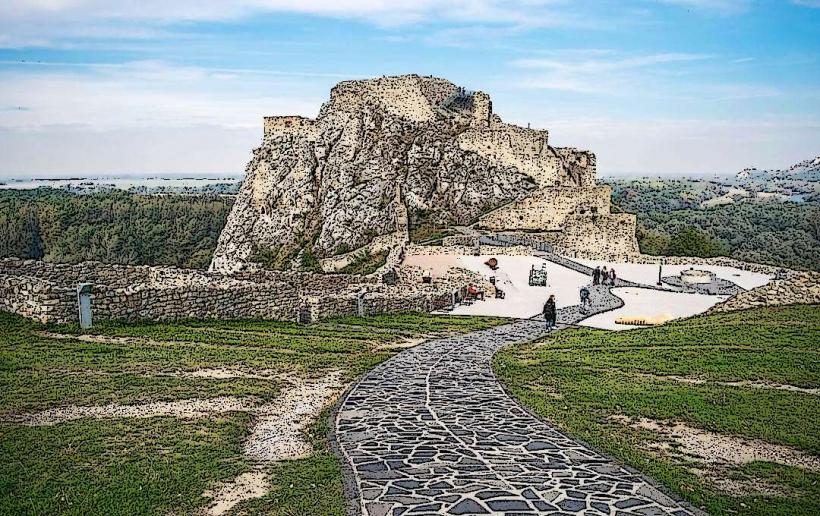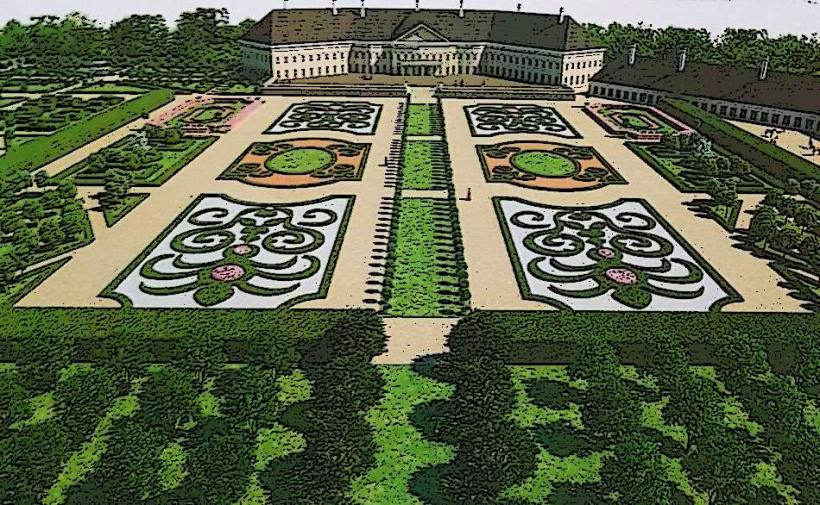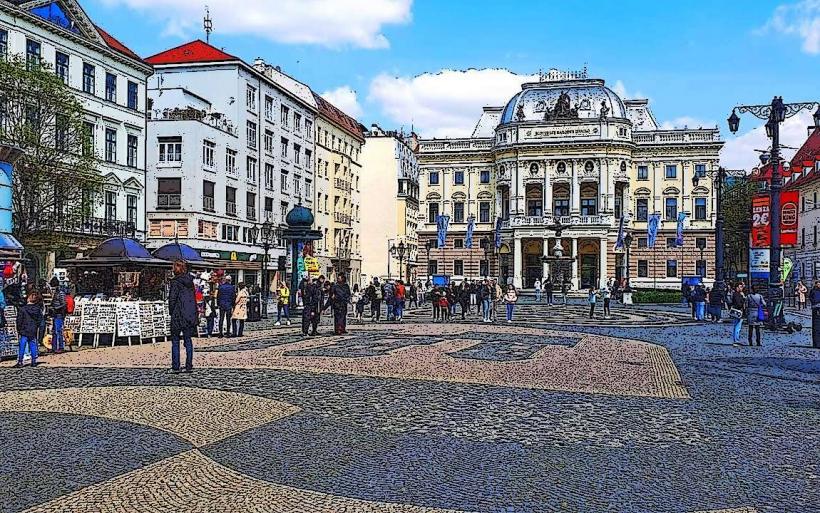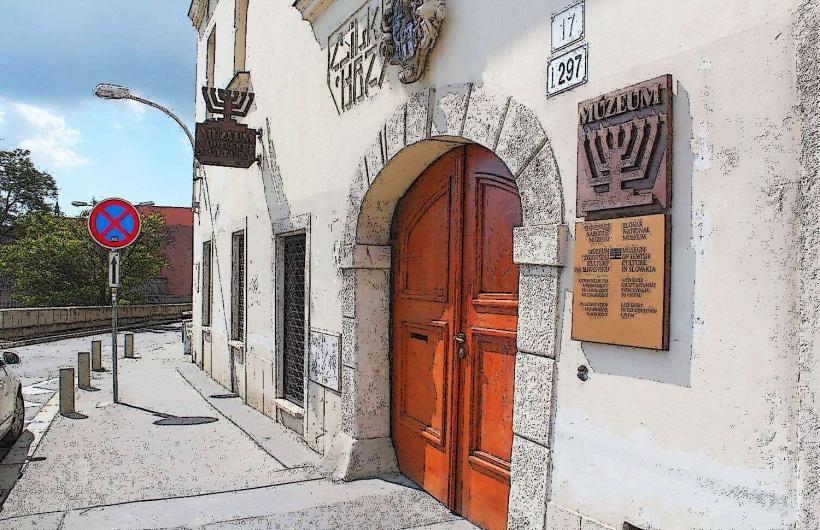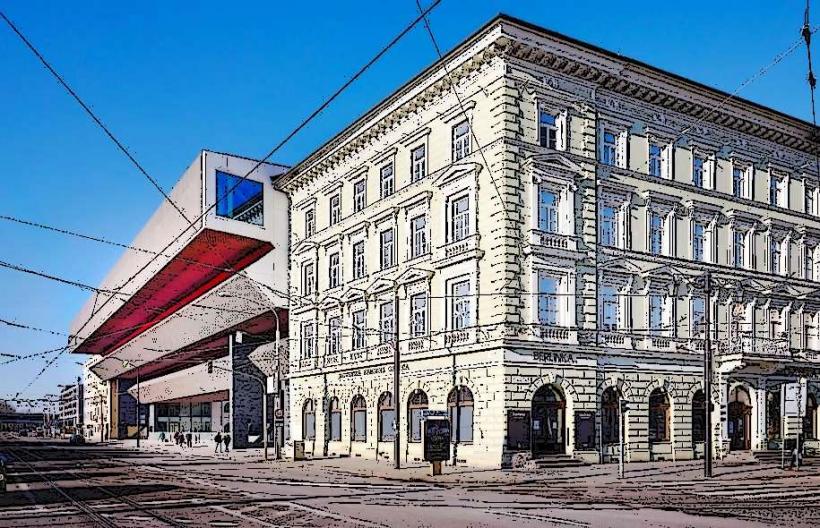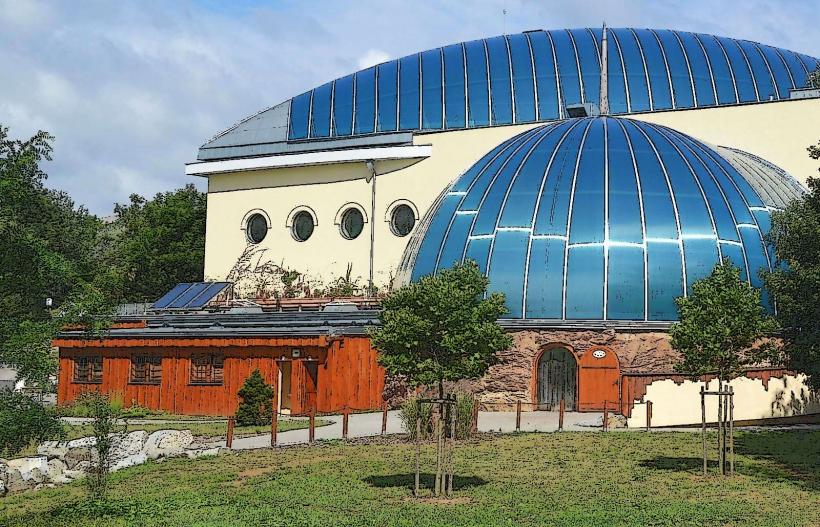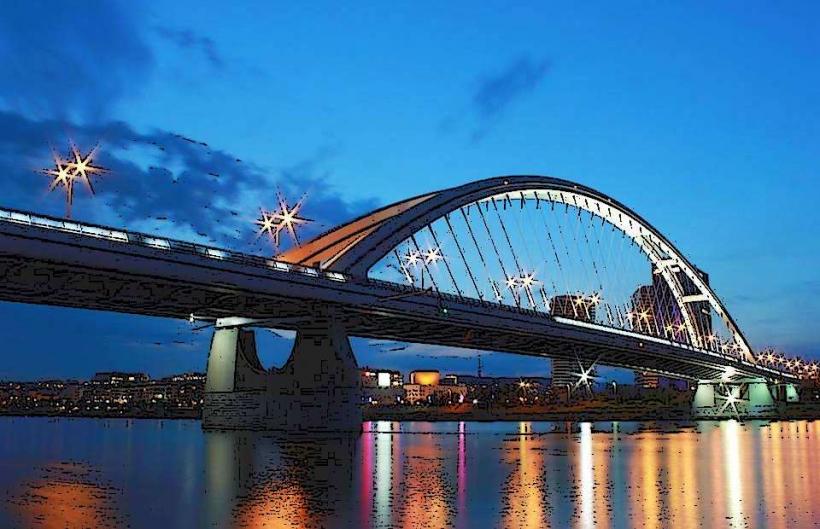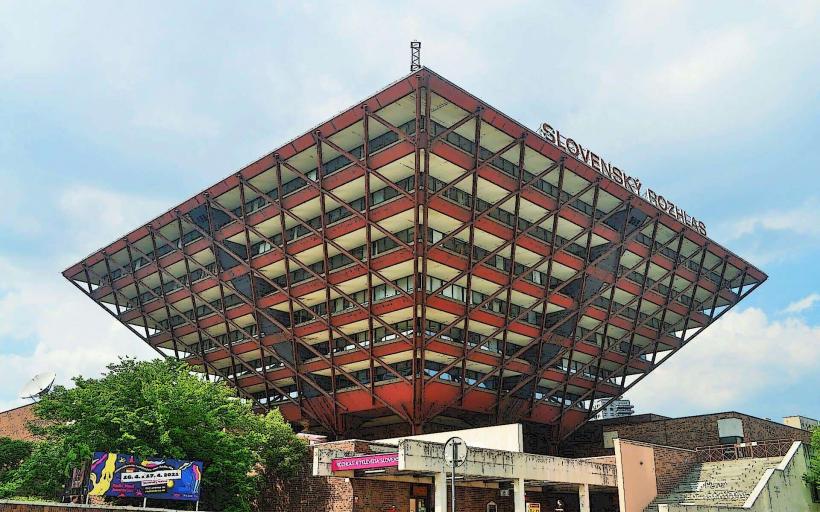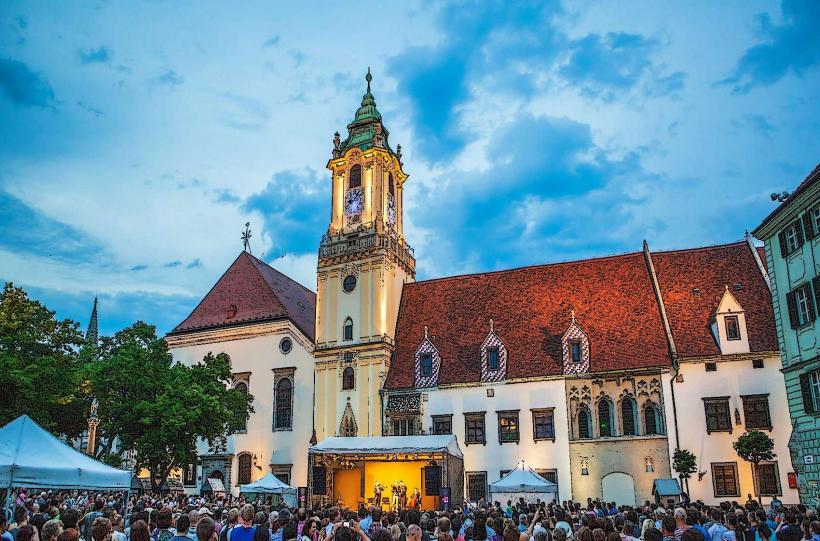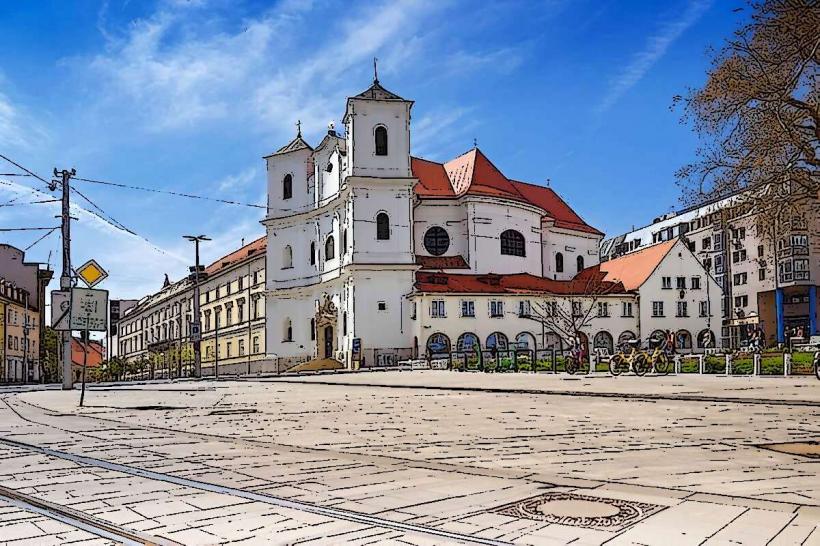Information
Landmark: National Bank of SlovakiaCity: Bratislava
Country: Slovakia
Continent: Europe
National Bank of Slovakia, Bratislava, Slovakia, Europe
The National Bank of Slovakia (Národná banka Slovenska - NBS) building is an important institution in Bratislava, Slovakia, serving as the central bank responsible for monetary policy, currency issuance, and economic stability in the country. The building, which houses the headquarters of the NBS, is not only a functional financial institution but also an architectural landmark in the city.
General Information:
- Location: Bratislava, Slovakia
- Address: Imricha Karvaša 1, 813 25 Bratislava, Slovakia
- Type of Building: Administrative/Banking
- Architectural Style: Modernism
- Website: National Bank of Slovakia
History and Role:
Foundation and Purpose:
The National Bank of Slovakia was established in 1993 after the country gained independence from Czechoslovakia. It plays a vital role in monetary policy, managing the Slovak koruna (SKK) (until the adoption of the Euro in 2009), and ensuring financial stability. The NBS is also responsible for overseeing Slovakia's banking system and foreign exchange operations.
Building History:
The current headquarters of the NBS was constructed in the 1970s. It was designed as a modern administrative building to house the growing central bank's activities. Over the years, the building has undergone renovations to accommodate technological advancements and the institution's evolving needs.
Architectural Features:
The National Bank of Slovakia building is an example of modernist architecture, with clean lines and a functional design that prioritizes efficiency and utility. The building is well-integrated into the city's urban landscape and reflects the importance of the NBS in the Slovak economy.
Design:
The structure is characterized by its rectilinear shape and use of modern materials like glass and steel. The building’s exterior is simple yet imposing, symbolizing the central bank’s role in overseeing national financial matters.
Interior Layout:
The interior of the building is functional and designed to support the operations of a central bank. It includes offices, meeting rooms, and technical facilities necessary for managing the country’s monetary system and ensuring economic stability.
Sustainability:
In recent years, there have been efforts to make the building more energy-efficient and environmentally friendly, in line with modern trends in sustainable architecture.
Role in Bratislava:
The NBS building is a key component of the financial district of Bratislava and a central point in the country’s economic infrastructure. It serves as a focal point for the country’s monetary policy and economic regulations and plays a major role in the European Central Bank's operations.
The building also symbolizes Slovakia's economic transition, particularly after the adoption of the Euro in 2009, which marked a significant step in the country’s integration into the European Union's economic system.
Visitor Information:
While the National Bank of Slovakia primarily functions as an administrative and financial institution, the public can visit certain areas or attend special events organized by the bank, such as exhibitions, lectures, or public meetings related to Slovakia’s economic and financial policies.
Public Access:
Visitors may need to register in advance for events or specific visits. However, regular access to the building is typically restricted to employees and authorized personnel due to its function as a central bank.
Educational Programs:
The NBS also organizes educational programs and exhibitions for the public to learn more about the country’s monetary history, the Euro's introduction, and the role of the central bank in shaping the national and international economy.
Nearby Attractions:
Slovak National Gallery:
Located nearby, the Slovak National Gallery houses collections of Slovak and international art, offering cultural enrichment to visitors interested in history and art.
Hviezdoslav Square:
This square is within walking distance and is one of the main cultural and historical centers of the city. It is home to several important landmarks, such as the Slovak National Theatre and Statue of the Poet Hviezdoslav.
Bratislava Old Town:
A short walk from the NBS building, Bratislava's Old Town is a hub of historical and architectural attractions, including the Old Town Hall, St. Martin's Cathedral, and Michael's Gate.
Fun Facts:
Euro Adoption:
The National Bank of Slovakia was a key player in the country’s transition to the Euro in 2009, managing the process of currency changeover and ensuring a smooth integration into the Eurozone.
Central Bank Exhibits:
The NBS has hosted exhibits related to the history of money, coins, and the role of the central bank in a modern economy, including the history behind Slovakia's currency transition and the Euro.
The National Bank of Slovakia building is not only a critical financial institution but also an architectural piece that reflects the country’s economic progress and integration into the broader European financial system. While access is generally restricted, its role in the Slovak economy and its influence on the country’s monetary policies make it an important landmark in Bratislava.

